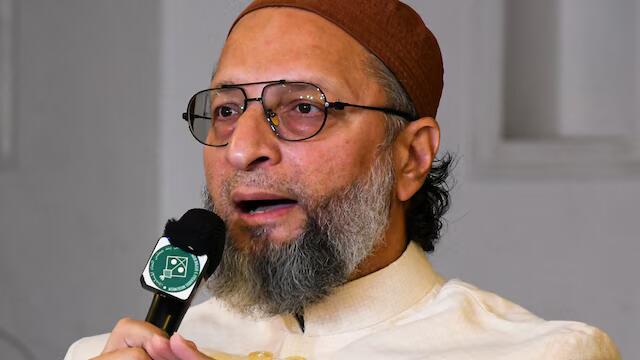
Revenge Must Be Taken for Pahalgam Terror Attack: Owaisi
The recent terror attack in Pahalgam, Kashmir, has sent shockwaves across the country, leaving 26 people dead and many more injured. The attack, which is being described as one of the deadliest in recent years, has raised serious questions about the security measures in place in the region. AIMIM chief Asaduddin Owaisi has been vocal about his thoughts on the attack, calling it a major security failure of the PM Narendra Modi’s government.
Owaisi, known for his bold statements and unwavering stance on issues, has demanded that the government take revenge for the attack and continue operation Sindoor, a military operation aimed at eliminating terrorists in the region. In a statement, he said, “Revenge should be taken for Pahalgam. Continue Operation Sindoor. We’ll question you until the four terrorists who killed 26 Indians are caught and killed.”
Owaisi’s comments come as a response to the security lapse that led to the attack, which he believes is a major failure on the part of the government. He is critical of J&K Governor Manoj Sinha for his delayed acceptance of responsibility over the security lapse. Owaisi believes that the government’s inaction has emboldened terrorists and given them a sense of security, allowing them to carry out such attacks with impunity.
The Pahalgam attack is not an isolated incident, but part of a larger pattern of violence and terrorism in the region. The attack has raised concerns about the government’s ability to protect its citizens and maintain law and order in the region. Owaisi believes that the government’s failure to take concrete action against terrorism has led to the current situation.
Owaisi is not the only one who has spoken out against the attack. Many other political leaders and experts have also condemned the attack and called for the government to take immediate action to prevent such incidents in the future. The government, however, has maintained that it is taking all necessary measures to ensure the security of its citizens and that the attack was a one-off incident.
The Pahalgam attack has also raised questions about the role of the military in the region. The attack took place in an area that is under the jurisdiction of the Indian Army, which has been accused of not doing enough to prevent the attack. The government has maintained that the attack was not a failure of the military, but rather a failure of the intelligence agencies.
In the aftermath of the attack, the government has launched a massive operation to track down and eliminate the terrorists responsible. The operation, which is being carried out by the Indian Army, the Central Reserve Police Force (CRPF), and other security agencies, has resulted in the killing of several terrorists. However, Owaisi believes that more needs to be done to catch and kill the remaining terrorists.
Owaisi’s call for revenge and the continuation of Operation Sindoor has sparked a debate about the effectiveness of military operations in the region. While some believe that military operations are necessary to eliminate terrorism, others argue that they can often lead to civilian casualties and human rights violations.
The Pahalgam attack is a stark reminder of the ongoing conflict in Kashmir and the need for the government to take concrete action to address the root causes of terrorism in the region. The attack has also raised questions about the government’s ability to protect its citizens and maintain law and order in the region.
In conclusion, Owaisi’s call for revenge and the continuation of Operation Sindoor is a reflection of the anger and frustration that many Indians feel in the aftermath of the Pahalgam attack. While some may disagree with Owaisi’s approach, it is clear that the government needs to take concrete action to address the root causes of terrorism in the region and to ensure the security of its citizens.
Source:






